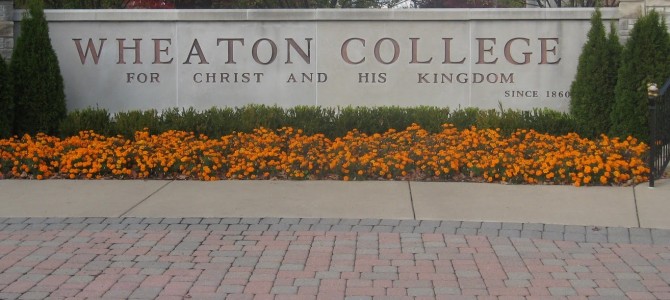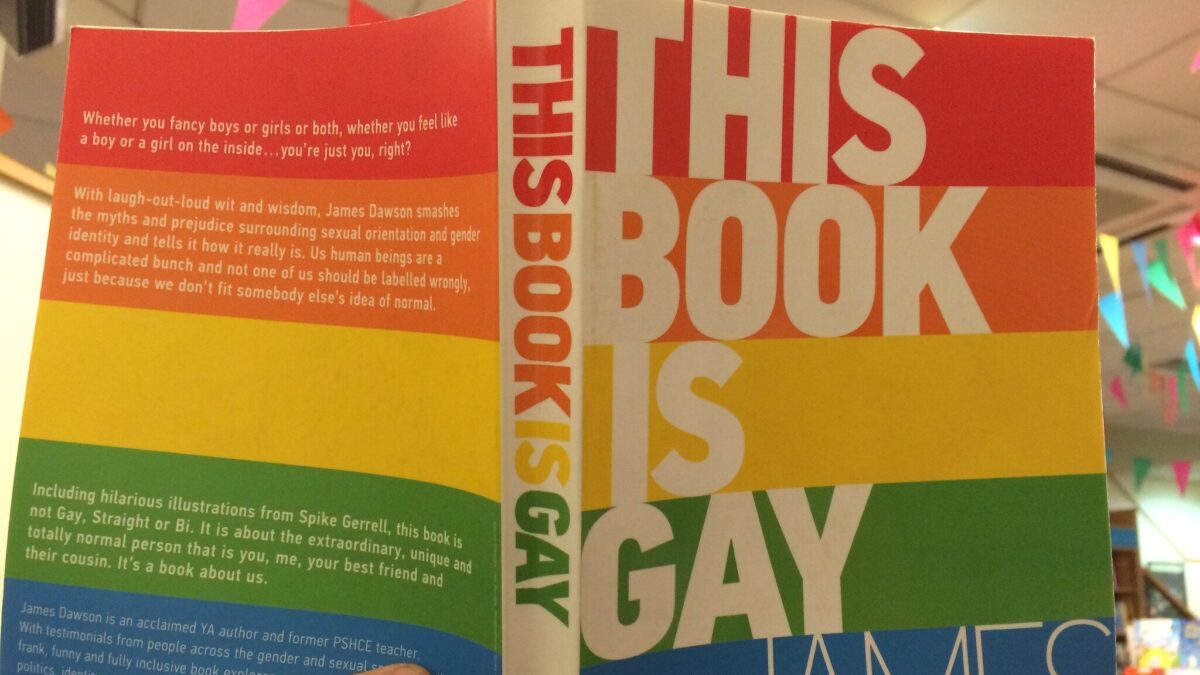Every so often an event burps to the surface that seems to lend credibility to the notion that young evangelicals are abandoning biblical sexuality. Whenever this happens, the horde of pseudo-journalists all too eager to propagate the narrative pound out their exclamations. “SEE!?”
The latest iteration of this pattern comes from the western suburbs of Chicago, home to the evangelical flagship institution Wheaton College.
The Wheaton Record writes:
Students sat on the front steps of Edman Chapel holding signs and singing on Friday morning, Jan. 31, in a demonstration of solidarity and a desire to be heard before chapel guest Rosaria Champagne Butterfield gave her testimony and address to the Wheaton College community.
The demonstration, named “More Than a Single Story” by its organizers junior Justin Massey and sophomore Jordan-Ashley Barney, featured students holding signs that said “We’re all loved by God,” “This is not a protest,” “Rosaria’s story is valid, mine is too,” and “I’m gay and a beloved child of God. This is my story,” among many others. The students remained on the steps until just before chapel began, at which point they prayed together and then entered into the chapel to hear the message.
Wheaton is a private Christian college whose roots are found in the 19th-century abolitionist movement. The school professes a traditional, Biblical view of human sexuality, which each student, staff and faculty member must affirm as part of a “Community Covenant.” Members of the community vow to faithfully avoid such aberrations from biblical fidelity as “the use of pornography, pre-marital sex, adultery, and homosexual behavior”.
A former atheist and lesbian, Dr. Butterfield was invited by Wheaton College to speak at one of their weekly chapel services about her conversion to Christianity and subsequent change in lifestyle. It’s not the first time Wheaton has provided a platform for a powerful story of God’s transformational grace over homosexuality. In 2011, alumnus Wesley Hill gave his personal testimony (wonderfully articulated in his book Washed and Waiting: Reflections on Christian Faithfulness and Homosexuality). Like Butterfield, Hill’s message was rejected by a small fraction of the college community. His testimony inspired a few students and alumni to start a new group, OneWheaton, for those who prefer anti-biblical notions of human sexuality, and want to spread the lie that sex outside of marriage is Godly. As of this writing, the group’s Facebook page has 1,406 “likes”.
Yes, 1,406. The Facebook page for “The Gout” has more than that. Is this the revolution?
Despite its diminutive size, the “movement” has received ample attention. And when a few of the OneWheaton ilk decided to hold signs outside this chapel gathering in protest of a message of hope and transformation through God’s grace and mercy, they were heralded by many.
We believe the real story here is that in 2014 a speaker like Rosaria would be given a platform at a required gathering of the student body at an American institution of higher education. As the “inevitability” of “equality” bears down on the nation as a runaway train over 2,000 Millennial evangelicals didn’t protest her message. Unlike the sycophants on the steps, they gave Rosaria a standing ovation.
Another key part of this story is that the cadre of confused coeds was treated well. The administration was not baited into reactionary suppression or some such. Wheaton showed no fear, engaging the debate over ideas by coordinating with Butterfield to schedule a “talk-back” session.
This response belies the presumption of ignorance and anger associated with Christ-centered education, and demonstrates a level on intellectual seriousness often not found among the so-called “tolerance” set. A recent example is the reaction to Princeton Professor Robert George’s debate with Cornel West. In her school newspaper, a liberal student question the value of including conservative views because they embed “deep inequality in our society.”
As G.K. Chesterton put it, there is a thought that stops thought – and that is the only thought that ought to be stopped.
Wheaton College encourages thought that moves towards something: Christ. Colossians 1:17 teaches that Christ is “before all things, and in him all things hold together.” Christians need not fear the pursuit of truth through wrestling with ideas. This is why Wheaton has consistently demonstrated willingness to engage in constructive dialogue with groups like SoulForce, the controversial Father Michael Pfleger, Tony Campolo, and many others.
Sexual ethics are the frontline in the Church’s contention with the ideology of the emerging “post-Christian” age. Wheaton is preparing the next generation to face threats to religious freedom as a “prophetic minority”, to use Russell Moore’s phrase, in a nation that has grown out of the pretense of nominal faith.
Wheaton College is rare in this regard, but not alone. There are a few others equipping students to uphold Peter’s call: “…always being prepared to make a defense to anyone who asks you for a reason for the hope that is in you; yet do it with gentleness and respect.” (1 Peter 3:15)
It is disappointing to see an outspoken minority given the spotlight, but the faithful aren’t in it for accolades or attention. Obedience is enough. The overwhelming majority of current students, alum, and donors stand behind their promise to uphold biblical values. This must not be lost in the fray of a contentious cultural (and theological) debate.
R.J. Moeller is a blogger, podcast host and CEO of HashtagPros.com. Follow R.J. Moeller on Twitter. Eric Teetsel directs the Manhattan Declaration. Follow him on Twitter.









